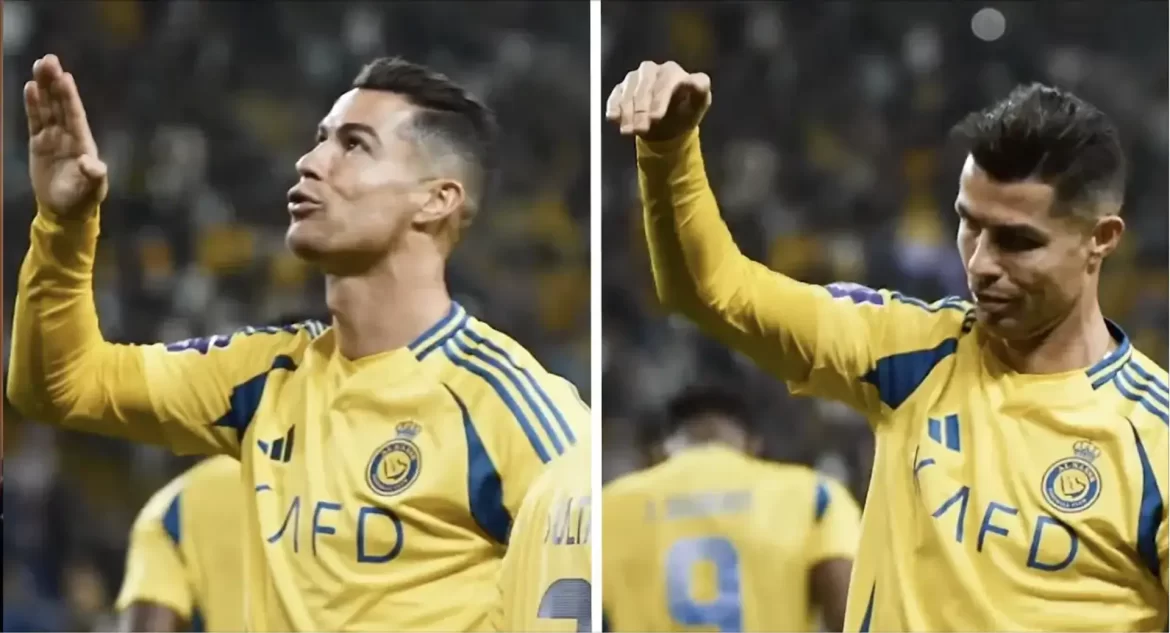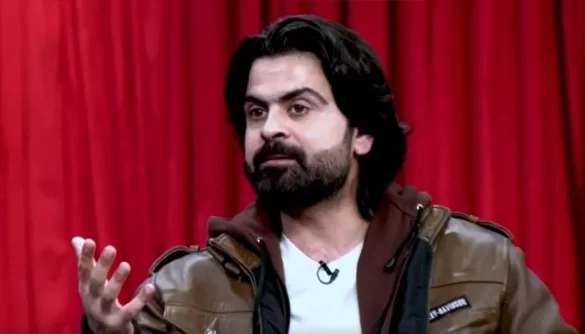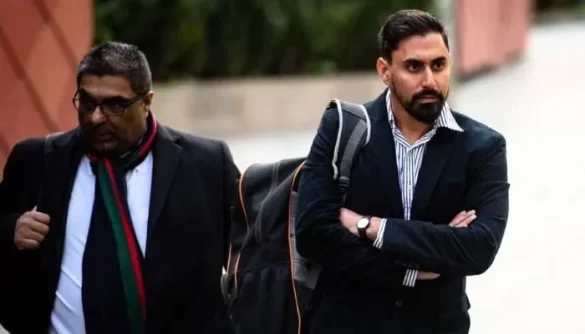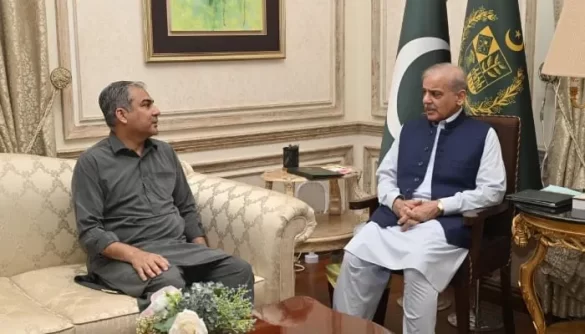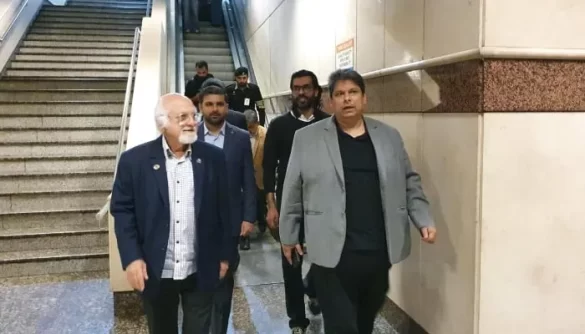Ronaldo Steps Into a South Asian Controversy
Portuguese football superstar Cristiano Ronaldo has unexpectedly entered a South Asian controversy, adding his voice—albeit humorously—to the ongoing online mockery surrounding the recent crash of an Indian Air Force Rafale fighter jet.
The 39-year-old footballer appeared in a video that playfully mimicked the incident, imitating the viral “airplane crash” gesture first made famous by Pakistani fast bowler Haris Rauf. The clip quickly gained traction, sparking a fresh wave of reactions across India, Pakistan, and beyond.
Pakistan’s Interior Minister and Pakistan Cricket Board (PCB) Chairman Mohsin Naqvi amplified the moment by sharing the video on his official account on X (formerly Twitter). His post further intensified the debate, giving the impression that the incident had crossed from sports banter into political symbolism.
The Origins: Haris Rauf’s Viral Gesture
The reference stems from a cricket match earlier this year between traditional rivals Pakistan and India. During the high-pressure encounter, Indian fans attempted to taunt Pakistani pacer Haris Rauf from the stands. His gestures during the Pakistan–India clash later sparked massive online buzz, becoming a cultural talking point beyond cricket. In response, Rauf gestured with his hand like an airplane and then motioned it crashing downward—an apparent dig at India’s military hardware and particularly its prized Rafale jets.
The Rafale aircraft, manufactured by France’s Dassault Aviation, had been showcased by New Delhi as a key modernization step for the Indian Air Force. India purchased 36 Rafales in a multibillion-dollar deal with France in 2016, a transaction often highlighted by Indian officials as a symbol of national strength.
Therefore, the symbolism of Rauf’s mocking gesture—and now Ronaldo’s involvement—hit a nerve with Indian audiences. Many Indian social media users expressed anger, while Pakistani fans celebrated the moment as a clever comeback.
Ronaldo’s Role and the Reaction
Cristiano Ronaldo, one of the most followed athletes in the world with over 600 million Instagram followers, is no stranger to viral moments. However, his indirect involvement in a South Asian geopolitical flashpoint surprised many.
The shared video shows Ronaldo replicating Rauf’s airplane-crash gesture in a lighthearted manner. While clearly intended as humor, the clip quickly became politicized. Pakistani users widely circulated the video as evidence of international figures poking fun at India, while Indian commentators dismissed it as disrespectful.
The video’s circulation demonstrates how even a sporting celebrity far removed from South Asian politics can unintentionally amplify sensitive rivalries.
Politics Meets Sports and Entertainment
Minister Mohsin Naqvi’s decision to post the Ronaldo clip further blurred the line between sports banter and political messaging. As a senior government official and cricket board chief, his endorsement gave the video a more official stamp, which some critics said risked inflaming tensions unnecessarily.
In South Asia, cricket and politics are often deeply intertwined. Rivalries on the pitch frequently mirror broader diplomatic and military disputes between India and Pakistan, both nuclear-armed nations with a fraught history of conflict. Gestures, celebrations, or even offhand comments from athletes can quickly take on symbolic weight.
Broader Context: Rafale Deal Under Scrutiny
The Rafale jet deal itself has been politically sensitive in India for years. Critics accused the government of overpaying for the aircraft, while opposition parties questioned transparency in the multi-billion-dollar contract. Any incident involving the Rafale—whether technical malfunction or symbolic mockery—therefore resonates strongly in India’s domestic political landscape.
The recent crash added fuel to these debates, raising questions about the operational readiness of India’s new fleet. Against this backdrop, the spread of mocking gestures from Pakistani cricketers and now global football icons has only heightened the controversy.
Conclusion
Cristiano Ronaldo’s lighthearted video, likely intended as harmless fun, has unexpectedly pulled him into one of South Asia’s most sensitive rivalries. What began as Haris Rauf’s playful response to heckling in a cricket match has snowballed into a viral, cross-border debate involving one of the world’s most famous athletes.
The incident underscores how sports, entertainment, and politics frequently collide in the digital age—where even a fleeting gesture can spark heated international reactions.

